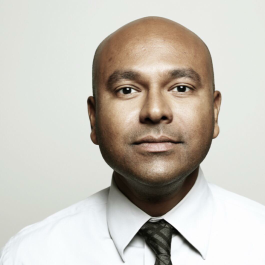
You think you’re ready to finally take the plunge, that bittersweet feeling right after residency/fellowship graduation. Lifestyle in the Holocene Epoch of the Quaternary Period has evolved exponentially. You realize the educational journey you set on is going just as you hoped for, but why do you still have that feeling of hesitation? The fear of the unknown. In medical school, we all played mental hooky during Adulting 101 and now regret it. I know what you’re thinking: “Waaait a second, they didn’t offer that course.” You know what we weren’t taught? Finance.
Speaking about finances during residency was somewhat taboo. Not so much when you’re an attending. Slang for a term I never heard prior to becoming a full-time employee (FTE), bennies. Then it becomes common amongst colleagues to discuss benefits: “Better get those bennies, Fred.” “Joan, you’re going part-time? What will you do about bennies?” “What changes to my bennies do I need to make when I get married?” “Susan, are you going to jump on your husband’s bennies now?” So much of life befalls you when you finally enter the cooperate world, a realm most of us know very little about. Grab me a TLC kit and some lido with epi, hang the milk and pass me a 10 blade, push fentanyl/versed and prep the scope. All the things, which at this point became second nature; but put an employment packet in front of my face to sign and I’m a deer in headlights.
If you are like me, you didn’t want to think about any of this. Our declared majors were in the sciences, not economics. There’s a guy that does that, isn’t there? My buddy is always saying “I got a guy” so maybe I’ll just call him. As training comes to an end, we aren’t accustomed to the dynamic income fluctuation after that transition. With this comes the dreaded adulting phase of our lives. Yeah, that part in life when a slew of decisions need to be made.
We all looked at the benefits page of our program's website, but most of us probably never put any thought into it. At that stage, bennies were standard. As an attending, I realized part-time employees are eligible for bennies also. Many institutions require you to be 0.75 FTE, others may request 0.66 to be eligible. Some even have adjusted benefits packages for PTEs. I realized quickly, adulting is a thing and I need to step up my game.
SIMPLE, Safe harbor, SEP, Solo IRAs. The first thought that came into my mind, isn’t Roth a character on Friends? And if you, like myself and many of our colleagues, share the same sporadic burst of random thoughts, a myriad of questions entered your mind as well.
What’s the difference between a 401K and 403B? There’s a 457B also? Are those TSAs? But all I know is the different types of CVAs. What does the NWA say about that? Is the CIA involved? I’m sure the FBI can find out if my employment is FTE or PTE. OMG did I sign my offer letter? Does the PTE position offer disability insurance (DI)? Would I be better off as a FTE? What happens to central DI after DDAVP? Man, I hate calculating the osmolar gap. Squirrel! Okay okay, focus.
What does it all mean? Do I need DI? What kind of health insurance covers my family and the child I plan on having? Whole life vs Term life? Hashtag intern life! Retirement matching? CME funds? Licensure reimbursement? Sign on bonus? Retention bonus? Student loan repayment? Tax benefits? Student loan deferral? Performance bonus? Promotion incentives? What do you mean I have to make elections? It’s not even November yet!
Understanding fringe benefits while you search for your first attending role may present as a challenge. Just like almost every other aspect of life, you learn from experience, making mistakes along the way. Take a deep breath and digest the following words. During the process of adulting, you will inevitably lose money. Let it sink in and be ok with that. In some form or another, you will look back at decisions you’ve made, deductions you overlooked, write-offs you didn’t know existed, etc. Medicine is complex enough; patient care is strenuous enough; don’t beat yourself up about the finances of a blossoming career.
The most influential advice given to me: “Almost everything in life follows the same concepts of business: basically, your goal is to earn and provide for your family as you see fit, while everyone else’s modus operandi is to take a piece of your pie.”
There are plenty of services out there. Certified public accountants, financial advisors, wealth management firms; but if you don’t know the basics, that piece of pie is going to get smaller and smaller. A good general surgeon and a good internist are worth their weight in gold! So are attorneys, CPAs and FAs. How much time do you spend at your patient’s beside, so they understand why they are trusting you to make a decision which involves their life? Find an advisor who gives you the time and respect to educate you.
Fee-only or fee-based financial advice? Whole life vs term life with a side of disability insurance? I bet they get some commission, right? That’s the name of the game. After residency/fellowship graduation, our real lives begin. The one where we must learn all the fun stuff like pre-tax and post-tax retirement planning.
This piece was never intended to be the solution to your debacle, more like a farce to empower your mind to seek a plan. First, learn the definitions so you can speak their language. Then start with your own bank, go talk to someone, anyone there. Discuss with a financial planner, call up a wealth management firm, find the lawyers in your area that offer “free consultations.” Keep asking the same questions over and over again, get the perspective of each individual you are discussing with. Only then will you have a foundation to make an educated decision for yourself and your family.
Unfortunately, life isn’t one size fits all. Too many variables play a role in financial planning and wealth management. The big elephant in the room is the dreaded loan personas studiosum, which is another beast of a discussion in and of itself. With the various resources available, understanding when and where student loan interest goes and contrasting with projected retirement benefit, you try to make the most logical decision for you and your family’s needs. Oh, and lastly, pray to dear God that the market continues to do well!







